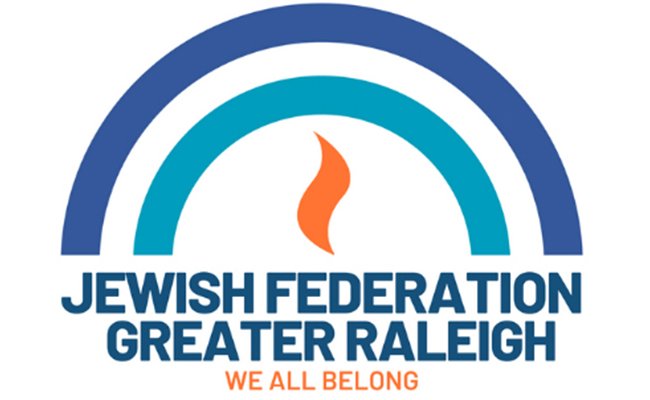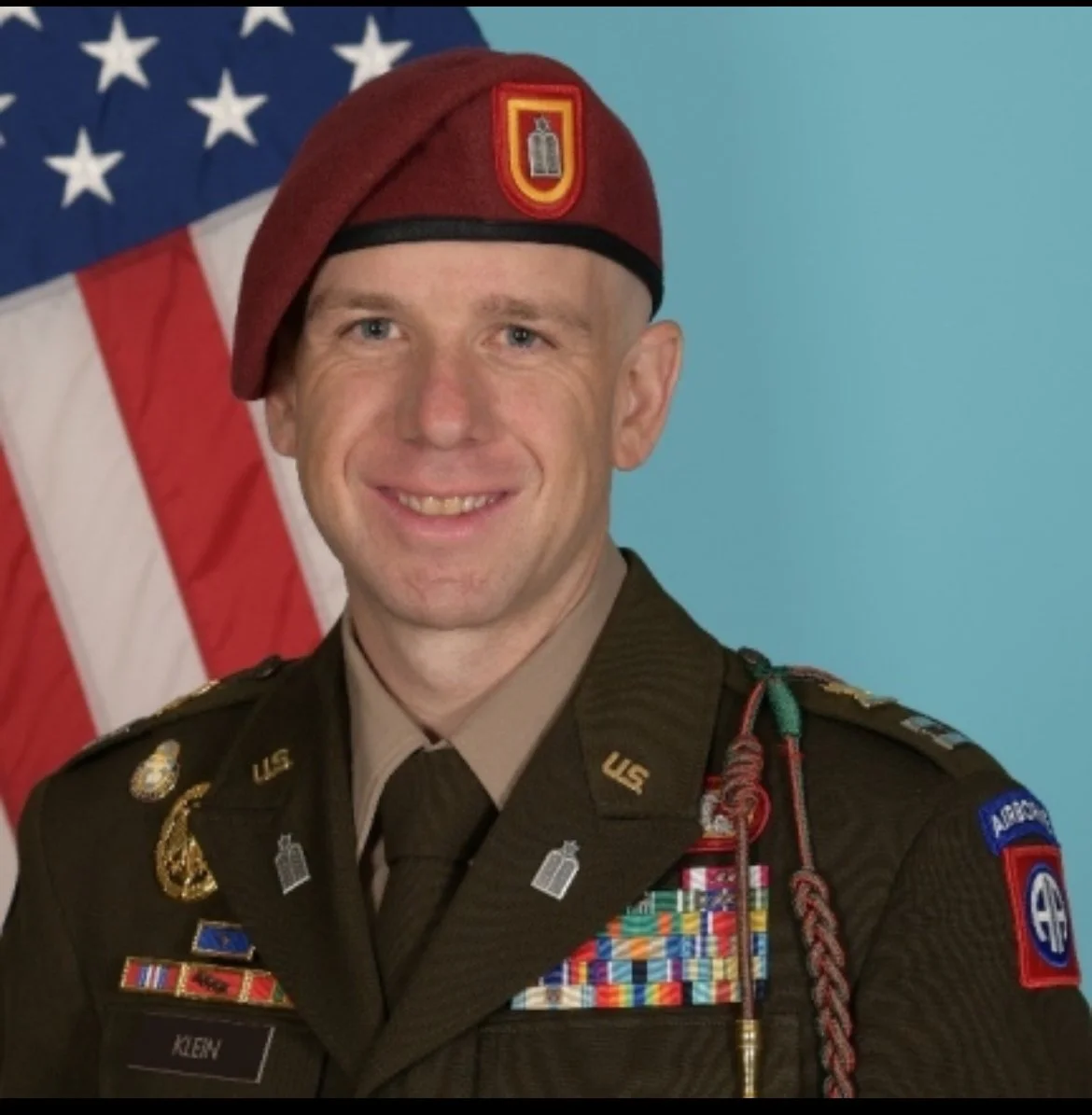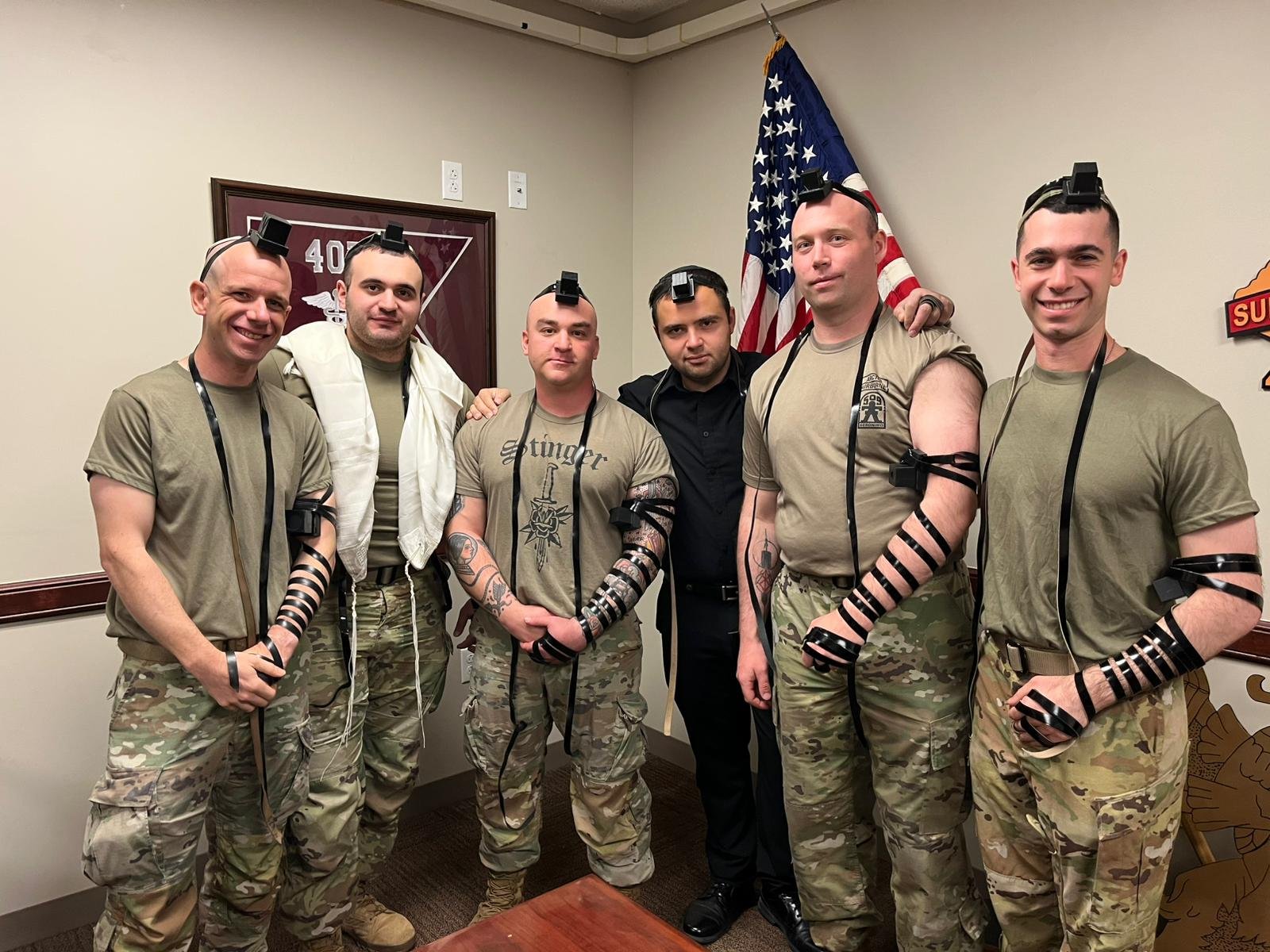Interview with Rabbi Scott Klein, Jewish Army Chaplain
Rabbi Scott Klein is the new Jewish Army chaplain stationed at Fort Bragg, one of the largest military bases in the world by population. He is also serving as the Interim Rabbi for Beth Israel Congregation in Fayetteville. We spoke to Rabbi Klein about his journey to becoming a Chaplain and how the Jewish population at Fort Bragg has grown.
Rabbi Scott Chaplain, 407th BSB, 2nd BCT, 82nd ABN DIV
Q: What is your background?
A: I was born and raised in Skokie, IL, which has a large, strong Jewish community. I always wanted to be a rabbi because I saw how important they were in the life of the community. I went to school in Detroit, Israel, and New York. In New York, I caught the bug for getting involved in Jewish communal work. I realized I didn’t need a pulpit to make a difference.
I eventually moved back to Chicago in 2009, and everyone said I needed to network. I joined several Chambers of Commerce and discovered that in the Jewish community, it’s just a matter of connecting the dots. I put together a lunch at a kosher pizza place, thinking that 25 people would show up. Instead, 75 people showed up! That was my introduction to continued involvement in Jewish community organizing. I started Jewish B2B Networking for Jewish business owners to connect. In the midst of a recession, I loved the opportunity to help small businesses. I got a Master of Arts in Jewish Professional Studies at the Spertus Institute in Chicago, and I thought that’s where I would continue to stay. Then the Army came up.
Q: Why did you want to become an army chaplain?
A: I started in the Army as a Military Police Officer. I arrived at Fort Benning, GA and went to Jewish religious services. It turned out I was the only person who could lead services. I had those skills after going to Jewish day school in my childhood. People kept assuming I was going to be a chaplain, and I fought it for a while instead of doing what came naturally. I was a Jewish lay leader and got deployed several times.
Then, I was sent to Texas and a Baptist chaplain asked me to meet him in an abandoned building. It turned out to be an old Jewish chapel with a Torah scroll that had been misplaced. That’s when I knew that I wanted to be a chaplain. That was the moment I realized the need that exists, because there are only approximately 12 Jewish active-duty chaplains in the Army. It’s also about the people that got me in, and keep me in. Now I’m a rabbi, a paratrooper, and I serve the world’s largest military base.
Soldiers wrap tefillin at Fort Bragg.
Q: What is the process for becoming a chaplain?
A: Chaplaincy requires three qualifications. The first part is the education. You need an MA in Theology or Divinity with a minimum of 72 credit hours. The second part is that you have to be endorsed by your ecclesiastical organization. JWB Jewish Chaplains Council is the main one for Jewish chaplains. You have to be a religious leader in good standing. You also have to qualify for the Army.
The whole process took me 3 ½ years–all while deployed, and mostly in the Middle East. I did some part of my studies in 22 countries. I get to say I did rabbinical school in Syria! Thankfully, COVID made it easier for the schools to embrace remote learning. I got my ordination through the Academy for Jewish Religion in Yonkers, NY.
Q: What is the most rewarding part of the job?
A: The opportunity to take care of people where they are at—in life and professionally. I’m a unit chaplain within the 82nd Airborne Division. I take care of my soldiers in good times and bad times. We are the only role in the military with full confidentiality. It’s the best job, because you get to take care of people.
I am the rabbi for Fort Bragg, which is the largest military base by troop density, and for Beth Israel Congregation in Fayetteville. I am also an educator. I advise commanders when something might impact the Jewish community. I have many non-Jewish soldiers who call me their rabbi, when they have never met another Jew in their life. I look at my uniform with a patch saying “US Army” on one side and a patch with the 10 Commandments on the other, and I can’t believe I have the coolest job in the world!
Q: What is the most challenging part of the job?
A: All of the same things. We have the largest number of deployed units in the military. The stressors that we put on our paratroopers are massive. The stress is 24/7. I deploy with them and train with them. It’s a lot for me, and more importantly, it’s a lot for them. It’s tough. because you see folks through their ups and downs. I’ve never been in a unit like this, where we train as hard as we do. Being the only rabbi can be lonely. I’m the person that the unit leaders, hospital leaders, fire department, police department, and mayor call regarding questions about Jewish matters.
Q: What is the Jewish community like in Fayetteville and on the base?
A: When I arrived, there was a rabbi at Beth Israel who has since retired. Beth Israel has a beautiful campus, active religious school, weekly Shabbat services and holiday programming. For a small community, it is very active. It’s enhanced by the transient nature of Fort Bragg. That’s what brings children into the religious school.
There’s a lot of crossover between on-base and off-base. We also have Friday night services on the base, where we have great participation. We just had a baby naming and we have a wedding coming up. There are currently 250 Jewish service members. My goal is to ensure that the fence and the gates at the perimeter at Fort Bragg are just small security measures. We are one Jewish community, and we are not divided.
Q: What are your goals for your time there?
A: I’m expecting to be here for 4-5 years. My goal is to have continuity in the Jewish community. Before I arrived, there was a gap of about a year since the last rabbi left.
We do Passover Seders. We did an October 7th commemoration. We are working with the commissary to provide challah and kosher meat for the first time. I want to ensure that Jews who come to Fort Bragg find a hospitable community, and that their time here is not a break in their Jewish life or participation. I want them to be able to live full Jewish lives while on assignment there.
Passover Seder, Guadalcanal, World War 2 circa 1944 (Photo provided by Jorie Slodki)
Q: What do you want civilians to understand about Jewish life in the Army?
A: There have been chaplains in the army for 250 years, going all the way back to George Washington. Rabbis and Jewish chaplains have been around for much of that time. We have had substantial Jewish participation in every major conflict in our nation’s history. Jewish chaplains have been alongside Jewish service members every step of the way. I want civilians to understand that all service is important. I believe you can be Jewish and proud while serving in the military, in all branches. Jewish chaplains have a unique role. The US Military has said they want representation, and they want everyone to have access to their own religious services and professionals. I want to see pluralistic Jewish chaplains in all branches of the military. For Jewish communal members who want to serve, I’m happy to talk to them!
To learn more about chaplaincy or Jewish life at Fort Bragg, contact Rabbi Scott Klein at scott.i.klein.mil@army.mil.



